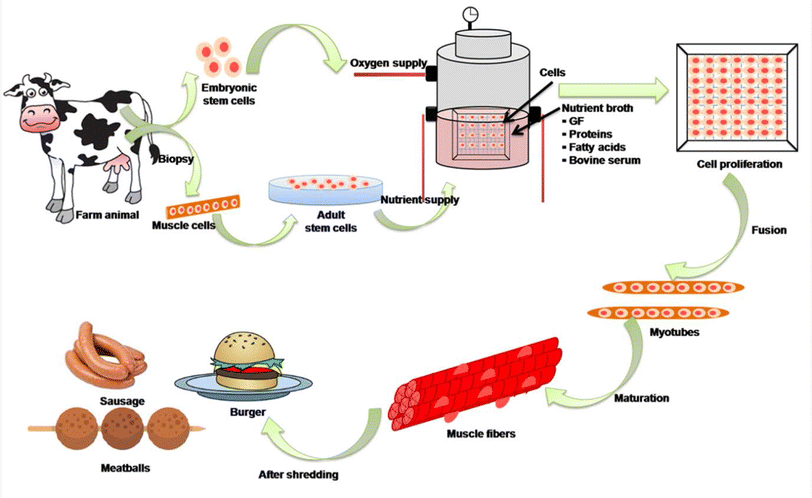The USDA just said it’s cool for two California companies, Eat Just and Upside Foods, to start making and selling their lab-grown chicken. So now the US is the second country, right after Singapore, to let people buy meat grown in a lab.

In theory, that should be a huge win for the climate.
One big reason why businesses are interested in cultivated (or lab-grown, or cultured) meat is because it could help reduce the environmental impact of our current food system. The animals we eat, especially cows, contribute to about 15% of the world’s greenhouse-gas emissions, meaning, globally on average, one kilogram of beef can account for emissions roughly equivalent to 100 kilograms of carbon dioxide., and this number is projected to rise in the future.

But it’s still not completely clear whether cultivated meat is better for the environment. That’s because there are still a lot of uncertainties about how production will work on a large scale.

In a recent preprint study, Edward Spang, and his team found that a food-grade process produces around 10 to 75 kilograms of carbon dioxide emissions, which is lower than the average emissions from beef worldwide.
But when it comes to making lab-grown meat with biopharmaceutical-like process—specifically including an energy-intensive purification step to remove contaminants, it actually produces way more emissions than traditional beef production. We’re talking about anywhere between 250 to 1,000 kilograms of carbon dioxide equivalent for every kilogram of beef, depending on the process used.
Early-stage companies still tend to use pharmaceutical-grade stuff. But, there are already cheaper food-grade options out there- Eat Just and Upside Foods are actually planning to use these non-pharmaceutical ingredients in their future business endeavors.

A lot of the techniques used in biopharmaceutical processes won’t be used in industry, not just because they would create a lot of emissions, but also because they’re too expensive in the long run. So it’s safe to say that lab-grown meat will eventually be good for the planet and our wallets too. 😉
Reference- National Geographic, The Verge, Vox, Fast Company, Forbes, the Wall Street Journal, MIT Technology Review, Time






